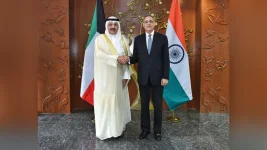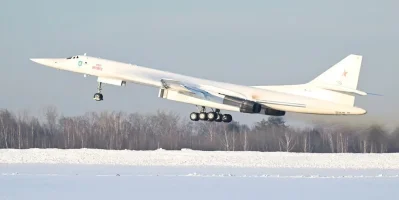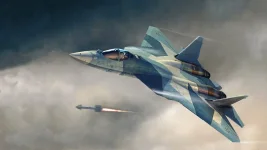- Views: 839
- Replies: 3

New Delhi – India and Russia are deepening their cooperation in the Arctic with a focus on the Northern Sea Route (NSR), a strategically important shipping lane connecting Europe and Asia.
A joint working group convened in New Delhi last week to outline a framework for collaboration, including increased cargo transit, joint shipbuilding projects, and the training of Indian sailors for polar navigation.
This initiative stems from a July meeting between Prime Minister Narendra Modi and Russian President Vladimir Putin, where both nations emphasized the development of "stable and efficient transport corridors" within a "greater Eurasian space."
The NSR, along with the Chennai-Vladivostok Corridor and the International North-South Transport Corridor (INSTC), are key components of this vision.
The working group, co-chaired by Rajesh Kumar Sinha from India's Ministry of Ports, Shipping and Waterways, and Vladimir Panov, Rosatom's Special Representative for Arctic Development, drafted a memorandum of understanding to solidify cooperation on cargo shipping along the NSR.
Rosatom, appointed by the Russian government in 2018 as the NSR's infrastructure operator, is leading efforts to enhance the route's capacity and accessibility.
The NSR offers a significantly shorter route between Europe and Asia compared to traditional southern routes. As climate change reduces Arctic sea ice, the route's viability and economic potential are increasing.
Russia aims to establish the NSR as a major shipping artery, with Rosatom spearheading infrastructure development, including new nuclear icebreakers and modernized port facilities.
According to Rosatom, international cargo transit along the NSR surpassed two million tonnes by the end of 2023. In the first half of 2024, nuclear-powered icebreakers facilitated 438 vessel calls, a slight increase from the same period in 2023, with total tonnage reaching 50.4 million tons.
This partnership allows India to diversify its trade routes and reduce shipping costs, while Russia gains a key partner in developing and utilizing the NSR. The collaboration also extends to joint projects in Arctic shipbuilding, enabling both nations to leverage their expertise in constructing vessels suitable for the challenging Arctic environment.
The training of Indian sailors in polar navigation further underscores the commitment to long-term cooperation and shared expertise in Arctic maritime operations.



